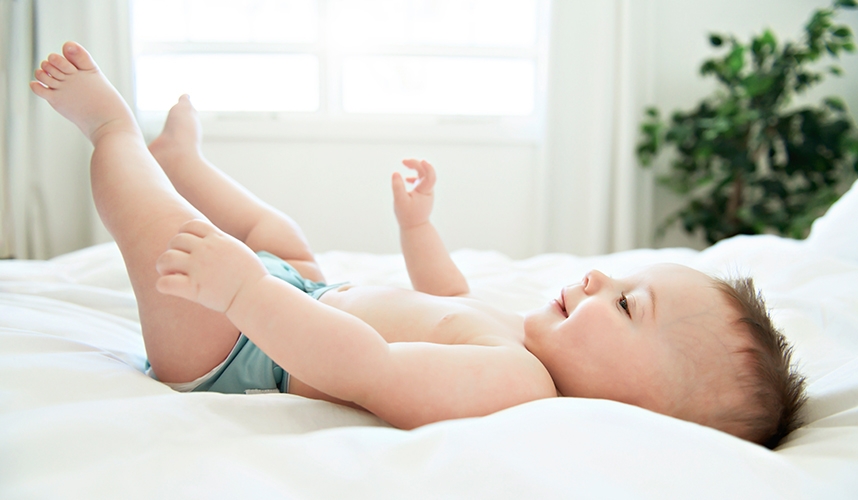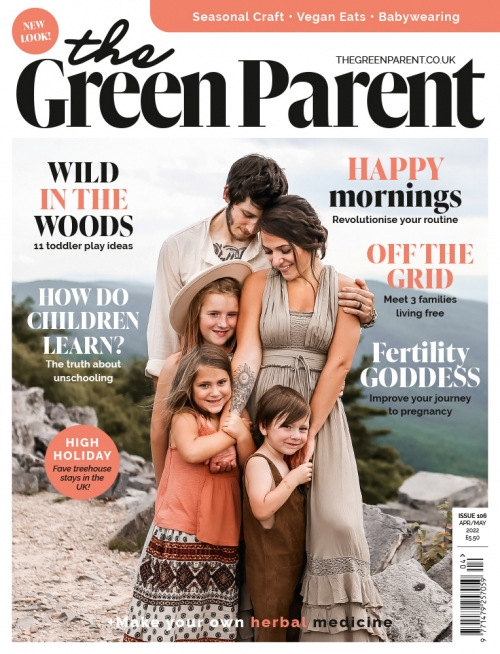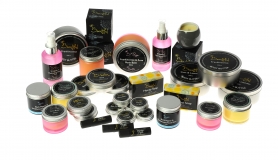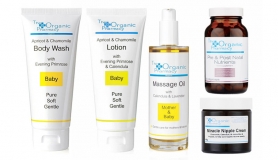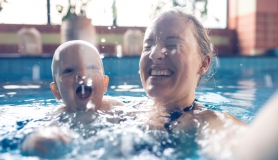Hattie, from Bedfordshire, is now mother to Tobias. As we enter Plastic-Free July – an event in which 250 million people worldwide participate – she talks us through the first six months of low-plastic motherhood
“I know many mums will think they already have too much on their plate to ‘go green’ but I have found it to be no extra stress than going for the non-sustainable options, and there’s a supportive community of mums doing the same.
I hired different brands of free cloth nappies from my local nappy library to work out which one worked best for me and my son, and used the questionnaire at The Nappy Lady (thenappylady. co.uk) to find the system that best suited us. We also took advantage of our local council’s Real Nappy Cashback Scheme. We’re still building up our stash of reusables, but we have enough to use two-thirds of the time and use disposables when we need.
Disposable nappies make up 4% of landfill in the UK, and it’s estimated that by using reusable nappies for just one child, parents could divert as much as 874kg from landfill and reduce their carbon footprint by up to 40%.
Reusable wipes have worked really well for us. I’ve been using a brand called Cheeky Wipes, which you can purchase on their website for around the £40 mark, a full set of wipes also comes with container boxes, travel bags and oils. The average newborn uses 160 baby wipes per week. So over 6 months, Hattie not only saved £30 by switching to reusable wipes, but also prevented 3,840 wipes, weighing over 23.4kg being sent to landfill.
Reusable food pouches come with many advantages, you can make your own food, you can save money, and they’re better for the environment. There are lots of brands of food pouches available online, including Kiddzo Squeeze Breeze Food Pouches and Yummi Pouches.
I couldn’t find a brand of resusable breast pads that worked for me, although there are lots of options out there, so it’s definitely worth trialling a few options. When it comes to shopping for toys and equipment for Tobias, I buy second hand, or steer away from plastic and towards wooden toys. My advice is to anyone who wants to go green during their child’s early years is to be prepared.
As Anne Marie Bonneau - Zero Waste Chef said, ‘we don’t need a handful of people doing zero waste perfectly, we need millions of people doing it imperfectly’.”
MORE TIPS
Rent Clothes - Subscription sites such as Bundlee deliver high-quality, ethical clothes through the post.
Shop SecondHand - Find toys, slings, buggies and more at charity shops and online.
Shop Sustainable - High quality, wooden toys and tables last for years. Turn Off The Tumbler - Air drying clothes, nappies and blankets saves energy (and makes everything smell delicious!)
Switch to a Renewable Energy Supplier - A baby can mean more demands on your power. Energy providers such as Pure Planet offer 100% renewable energy for £200 less than the Ofgem price cap.

